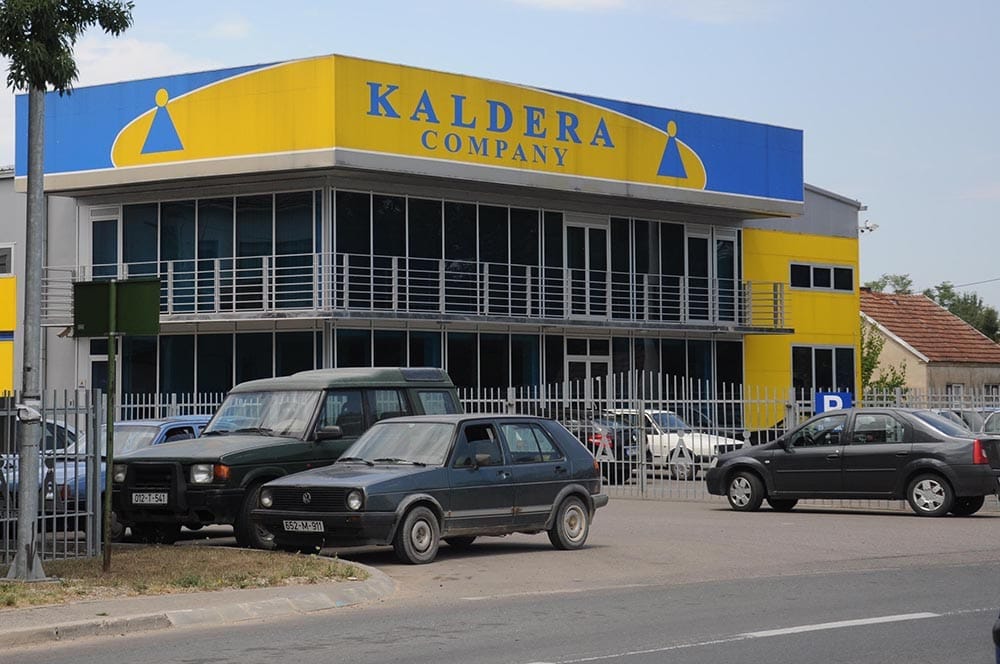Hidroelektrane (HE) of Bistrica is behind schedule building small hydropower stations on the Bistrica and Janjina rivers in East Bosnia and its Laktaši-based majority owner, the Kaldera Company has failed to raise investment funding needed for for the projects.
But the response of the Republika Srpska (RS) government has been to extend construction deadlines and give the firms other benefits.
Plans were that four small plants would be be built in the basin of one of the most important waterways in the Balkans for energy production. Elektrodistribucija Pale, a firm that transmits electrical power under the umbrella of the government-run RS Power Authority, won the concession to build in 2006. Projections were that 106 million KM would be needed to build and representatives of the concessionaire said the money had already been secured.
Two years later, at the advanced preparation phase, the government surrendered 90 percent of the concession rights to the private Laktaši firm. The RS Power Authority explained this by saying that it was not going to invest in small hydro stations.

Photo by CIN
The Center for Investigative Reporting in Sarajevo (CIN), however, has found that this decision has not been applied universally. Other firms working under the RS Power Authority umbrella have held on to their concession licenses and continued to work on their own preparing to build small stations. The RS government allowed one of them to take a loan of 100 million KM last year, for a plant on the Bosna River.
Further, the RS Authority passed its decision on small stations nine days after thego-ahead had been given Kaldera to take over the project.
From Elektrodistribucija to Kaldera
According to the concession contract Elektrodistribucija signed with the RS Ministry of Industry, Energy and Mining in August 2006, it was supposed to build three stations on the Bistrica and one on the Janjina.
The RS Power Authority’s research has shown how these power stations would pay off. According to up-to-date pricing, they could turn out power worth around 19.5 million KM a year. In 30 years, which is how long the contract is in effect, a concessioner could make a half billion KM in revenue.
Elektrodistribucija Pale was contractually obligated to start building by 2007 but that did not happen.
After signing the contract, the firm paid a concession fee and added guarantees worth 1.1 million KM that the work would be carried out.
A public bid in 2001 called for a firm that would produce zoning and technical paperwork. Projekt of Banja Luka and a German company Krebs und Kiefer International GmbH & Co. were awarded the contract. Elektrodistribucija paid it the contractors almost 5 million KM.

Projekt’s majority owners are Miroslav Vujatović, former director of the RS Institute of Urbanism, Borko Đurić – president of the RS Chamber of Commerce, and Milenko Čičić, the owner of Kaldera.
Before Projekt handed over paperwork to Elektrodistribucija, Čičić wrote a letter of intention to the Pale company in March 2008, suggesting his Kaldera became a partner with 90 percent share in the concession company.
The letter shows that Čičić was acquainted with deadlines, guarantees, the amount of investment and other data from the concession agreement, even though the agreement is not a public document, according to the interpretation of the RS authorities. The Kaldera owner could have learned the content from the agreement through the Projekt firm of which he is a co-owner.
Čičić is also a member of the Alliance of Independent Social Democrats (SNSD) and a member of then president of the RS government and the head of the party Milorad Dodik.
Concession Contract Violated
Ljubimir Mrda, director of Elektrodistribucija, told CIN that Elektrodistribucija knew at the time that it wouldn’t be able to finance a project. However, the report of the company’s Supervisory Board dated July 2008 reads that funds for financing of hydro power stations were secured from internal sources and loans.
Instead Elekstrodistribucija accepted Kaldera’s offer, a deal the RS Power Authority, the Ministry and the RS government all approved even though the concession contract spelled out that the license could not be transferred to a third party before the stations were built.
Predrag Aškrabić, president of the RS Commission for Concessions, said that a concession agreement is not the law: “Had we been unbending, then nothing would have been done”.
Other potential bidders were unaware that Elektrodistribucija was looking for a strategic partner, because it never advertised this. Mrda said there was no legal obligation to put out a public bid.
In March 2008, Elektrodistribucija set up a concession firm HE Bistrica in which it had invested 7.5 million KM in research and money.
According to the contract with HE Bistrica, Kaldera was supposed to pay 6.8 million KM to buy out 90 percent of Elektrodistribucija’s shares within three months.
Two and half months after signing the contract, Kaldera received a 5 million KM loan from the RS government-owned Investment and Development Bank of RS. However, Kaldera bought out its share in the concession company only at the end of last year.

Photo by CIN
Nine days afer the RS Concessions Commission gave Kaldera the go-ahead to take over the project, the RS Power Authority passed its decision not to invest in small stations.
No other concession rights from other companies were transferred to private firms. Elektrokrajina of Banka Luka, for example, still has a concession it won in 2007 to construct a small station in Delibašino Selo in the suburbs of Banja Luka.
One more company in the majority ownership of the RS government, Elektro Doboj, owns the concession for three power stations, one on the Paklenica River currently in the test phase, and two others planned for the Bosna River. The government gave its approval to this company to get a 100 million KM construction loan with a Frankfurt-based Credit Fund for Development last year.
Annexes and Extensions
Since transferring the concession to Kaldera, the Ministry has signed seven annexes to the agreement with HE Bistrica. The director of the concession firm Drago Stanivuković said that potential investors asked for some of these as a guarantee for their investment.
The annexes allow HE Bistrica the right to sell power in and outside the country.
Commissions officials charged with issuing permits for the trading and exporting of electrical power, say they know nothing about such an agreement and without their approval, it means nothing.
Other concessioners who talked to CIN said that they also knew nothing of the possibility of trading in power.
The RS government also extended the deadline for start of construction by HE Bistrica to the end of 2010, with a warning that not honoring it might lead to termination of the contract at the expense of the concessionaire.
This stipulation was satisfied when the RS Regulatory Commission for Energy in December 2010 issued permits for construction of the plants for the period of four and for six years. The permits specify that the power stations on the Bistrica must go into operation by December 2012, and the Janjine River plants by June 2012.

Photo by CIN
CIN reporters visited the locations at the beginning of July. There was no sing of activity at two sights while on other two work on access roads through forests had begun.
RS Energy Commission officials say road work cannot be considered as the beginning of construction of hydro-energy facilities, but the director of the RS Concession Commission disagreed and said this was the needed proof that the firm had started construction.
Concession on Hold
According to data from the RS Commission for Concessions, in the past six years115 concession contracts for small hydro power stations have been signed. So far, five have been put into operation, while 10 are being built.
The Commission recommended the RS Government terminate 36 concession agreements. Six have been terminated. No agreement was terminated because a deadline was not met.
The Commission reported in 2008 report that more than 80 assigned sites were controversial because they were located in national parks, and some were not included in spatial or regulation plans.
However, the sites for stations on the Bistrica and Janjina were not among these. Stanivuković, director of HE Bistrica and one of Kaldera’s executives, says that the firms don’t have money to build and they’ve been trying to find a partner for years to sell their share in the concessionaire firm to.
Last year they negotiated with Austrian-based Ki Kelag offering it 51 percent of shares in HE Bistrica, while Kaldera would keep 39 percent of ownership, and Elektrodistribucija its 10 percent. The companies did not come to an agreement.
If it terminated its contract with HE Bistrica, the RS Government could keep more than 1 million KM which this company has so far paid in concession fees and guarantees, and would also have the chance to give the site to someone with investment money.
Aškrabić said termination would not achieve anything. He said that no one is showing interest in small power stations and sticking with the current concessionaire means a better chance that building will be completed.







